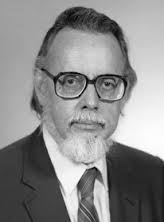My senior year of college, in a capstone sort of course, I read John Howard Yoder’s The Politics of Jesus and Richard Mouw’s Politics and the Biblical Drama. The current issue of Perspectives is a tribute to Mouw. There, many writers note Rich’s gift of bridge building—to Mennonites like Yoder in the 1970’s and 80’s, and to Mormons more recently. It brought to mind my senior year experience, which—hear this, all ye disconsolate professors—shaped my life deeply and permanently.
We read Mouw and Yoder in a typical “compare and contrast” manner. It wasn’t really a fair comparison. The Politics of Jesus is a classic, Yoder’s magnum opus. I think Mouw would agree that his Politics and the Biblical Drama doesn’t have the same stature, and wasn’t intended as a definitive piece. Apparently, it is now out of print.
 The Politics of Jesus probably left a deeper impression on me than any other single book. I really should re-read it, now many years later. I’m somehow reluctant to do that, worried it might not live up to my lofty expectations. I’m quite a different person than the twenty-two year old whose world was rocked by Yoder.
The Politics of Jesus probably left a deeper impression on me than any other single book. I really should re-read it, now many years later. I’m somehow reluctant to do that, worried it might not live up to my lofty expectations. I’m quite a different person than the twenty-two year old whose world was rocked by Yoder.
Reading The Politics of Jesus began a lifelong effort to reconcile the insights of Yoder with my own Reformed background, as well as a fascination with, admiration really, for Mennonites in general.
Over the years my experiences with Mennonite professors, colleagues, neighbors, and friends have been uniformly impressive. By and large, they are authentic, commendable, unpretentious folks. If “by their fruits ye shall know them,” then Mennonites are worth knowing. My case of Mennonite-envy has been tempered over the years. They too have clay feet. Critiquing Mennonites is not my aim here. I have been blessed by their emphasis on community and the unique role of the church, so wonderfully out of step with much of modernity. But I’ve also come to wonder if oddly they don’t have a volitional, optimistic individualism, expressed most clearly in believers’ baptism, very much in keeping with modernity. Our Reformed covenantal-infant baptism is wooly and wildly pre-modern in comparison.
One of my daughters graduated from Goshen College, a Mennonite school. At a “parents’ weekend,” I recall standing on the fringes of a sea of parents, most of whom were long-lost cousins and/or alums of the school. I guessed parents’ weekend at Calvin or Hope colleges might be pretty similar, a gathering of the tribe, still surprisingly ethnic and clannish. Vander Zyls, Dykstras, Mulders, and De Vries at one place. Schenks, Schlabachs, Yoders, and Hershbergers at the other.

As much as I’ve been drawn to Mennonites, I also claim that John Howard Yoder made me Reformed—and not in a way that I necessarily rejected Yoder for my own tribe. Yoder led me to Stanley Hauerwas. It was a Christian Ethics professor in seminary, a totally un-deconstructed, hardest-of-the-hardboiled Niebuhrian, who assigned a reading of Hauerwas. I hadn’t even done that day’s readings, but the prof’s class lecture unloaded on Hauerwas, an unbelievable diatribe that made me think “this guy sounds sort of like Yoder. I’d better check him out.” I was intrigued enough to go back to read the assigned Hauerwas passage and have been reading him ever since. (Another learning for professors: perhaps those students who disagree with or dislike you, will become attracted to those you disparage!) I think I’ve learned more from Hauerwas than any other single person.
Through him, I was introduced to Yalie’s like George Lindbeck and Hans Frei. Then on to their students, the so-called “postliberals,” like George Hunsinger and William Placher. And from them, I started to reread and finally appreciate Karl Barth. Of course, I’d been taught Barth in seminary, but he never took, seemingly too tame and dry. None of that is attributable to my projecting my tame, dry professors onto Barth! But Yoder was a doctoral student of Barth’s in Basel, so my full-circle journey is appropriate.
 When it was time for me to write my doctoral dissertation I received this good advice, “Write on people you appreciate and enjoy because you’ll have to read about everything they ever wrote.” I knew I wanted to include Hunsinger and Placher, but in comparison and conversation with who? Why not Richard Mouw, and Nicholas Wolterstorff, too? Postliberal meets neo-Calvinist. Particularity versus universality. Christocentric and theocentric. Barthians and Kuyperians. New Haven encounters Grand Rapids—although Wolterstorff taught at Yale too for many years, of course.
When it was time for me to write my doctoral dissertation I received this good advice, “Write on people you appreciate and enjoy because you’ll have to read about everything they ever wrote.” I knew I wanted to include Hunsinger and Placher, but in comparison and conversation with who? Why not Richard Mouw, and Nicholas Wolterstorff, too? Postliberal meets neo-Calvinist. Particularity versus universality. Christocentric and theocentric. Barthians and Kuyperians. New Haven encounters Grand Rapids—although Wolterstorff taught at Yale too for many years, of course.
An echo of my college capstone from many years before, perhaps even unknowingly inspired by Mouw’s own bridge building spirit?

